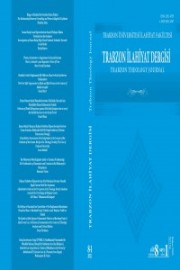Râgıp el-İsfahânî’de Dostluk-Erdem İlişkisi
The Relationship Between Friendship and Virtue in Rāghib Al-Isfahānī
Author(s): İbrahim AksuSubject(s): Non-European Philosophy, Ethics / Practical Philosophy, Islam studies, Philosophy of Religion
Published by: Karadeniz Teknik Üniversites - İlahiyat Fakültesi
Keywords: Islamic Philosophy; Islamic Ethics; Rāghib al-Isfahānī; Friendship; Virtue; Virtue-Friendship;
Summary/Abstract: Philosophical traditions of the classical period that Islamic philosophy is situated among them acknowledge friendship as an inborn characteristic that human nature necessitates and also one of the significant relationships that humans can develop. However, the place which friendship occupies in human life is not limited to this. Thus, the traditions in question argue for the idea that friendship is also a means for moral excellence. The role that friendship plays in moral excellence expresses itself notably in the link between friendship and virtue. This article investigates how the connection between friendship and virtue appears in the works by Rāghib al-Isfahānī (d. V./XIth Century), one of the Islamic moral philosophers from the early period. When the books of the philosopher are studied, several fundamental issues come to the fore. First of all, friendship is a value that approximates the agent to virtue, and furthermore, helps him pass beyond it. Nevertheless, it is stated that the phenomenon called friendship has more than one kind. And it is emphasized that among the relevant kinds only the ideal friendship relation, which the basis and goal of it are virtue, and for this reason, can be named “virtue-friendship”, carries a value from the moral point of view.
Journal: Trabzon İlahiyat Dergisi
- Issue Year: 8/2021
- Issue No: 1
- Page Range: 1-37
- Page Count: 37
- Language: Turkish

